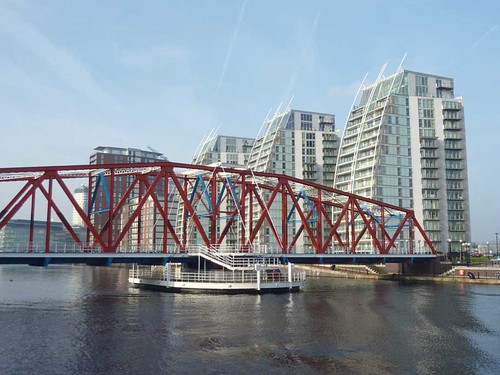Today, we visited Salford Quays. Once the thriving transportation hub of Greater Manchester the Salford
Quays became derelict in the process of de-industrialisation. The Quays are one of the earliest urban
regeneration schemes in Greater Manchester and apart form various residential developments they are home
to the Imperial War Museum, the Lowry Centre and the Media City .

Salford Quays Residential Development
We also had the pleasure to meet Chris Farrow. His regeneration portfolio has included Director of
Operations at London Docklands Development Corporation and Chief Executive at Merseyside Development
Corporation. Chris is now the Chief Executive of Central Salford URC and gave us an insightful presentation of Salford’s £4 billion
programme of regeneration.

All over Europe, cities are faced with the challenge of using cultural resources to re-position their
city in an increasingly culturally and economically diversified European space. Related to this is a
clear recognition of the growing importance of cultural resources for economic and community
development. This produces new opportunities and challenges for local cultural planning and management.
In order to fully exploit the innovative and supportive role of culture in European urban development,
it will be necessary to develop a new socially and culturally sensitive professionalism, able to cross
the boundaries between the arts, design, urban and spatial planning, public policy and the market,
artistic creativity and cultural management.
The MA in European Urban Cultures offers a specialist programme aimed at graduate students from Europe
and elsewhere with undergraduate degrees in subject areas such as the social sciences; cultural and
leisure studies; art, design and architecture; urban theory and planning; cultural marketing and
management. The course is also targeted at professionals and administrators eager for the latest
experiences, ideas and insights in urban cultural policy.

